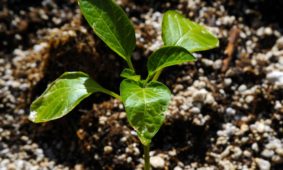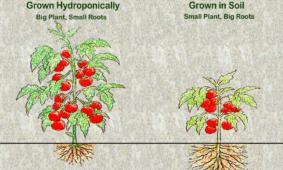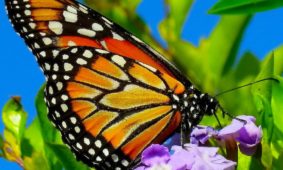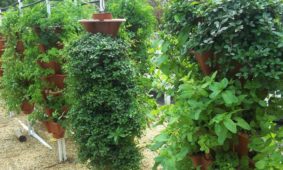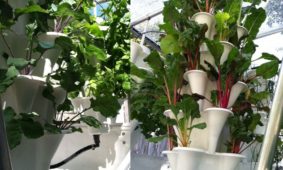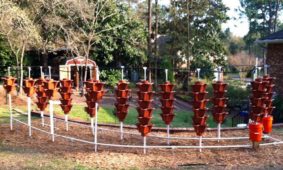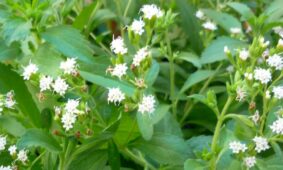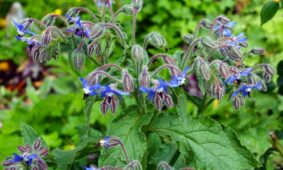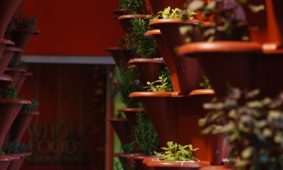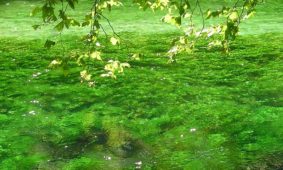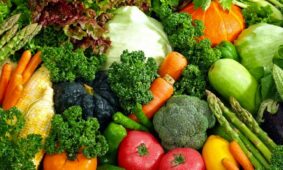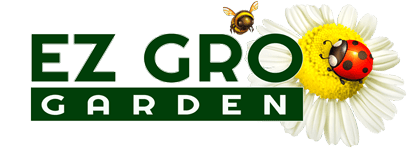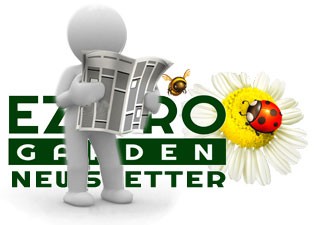Growing Organic versus Hydroponics
There is currently a popular debate about the value of “organic” growing and its methods, including organic fertilizer and pest control methods that don’t cause harm to the planet. It is important to note that hydroponic growers are also looking for ways to efficiently and effectively apply these practices to hydroponics. Currently accepted organic fertilizer […]
READ ARTICLESoil versus Hydroponics
Growing in Soil Growing Hydroponically Soil microorganisms are necessary to break down soil particles into the basic elements of nitrogen, phosphorus, potassium and trace elements.. Balanced nutrient formula is dissolved directly into water so plants receive perfect nutrition at all times. There is a lower concentration of nutrients in soil so roots must grow longer […]
READ ARTICLEButterfly
Butterflies are beautiful, graceful creatures and there are over 20,000 different species located in many parts of the world. They also provide a very important service for the plant kingdom: pollination. While they perch on a flower to drink the nectar that sustains them, some of the pollen dust sticks on their wings and legs. As they
READ ARTICLEWhy Use Hydroponics
The ability to produce higher yields than traditional, soil-based agriculture Allowing food to be grown and consumed in areas of the world that cannot support crops in the soil Eliminating the need for massive pesticide use (considering most pests live in the soil), effectively making our air, water, soil, and food cleaner Pesticide free products […]
READ ARTICLEEfficient And Economical Food Production Systems
With the recent price increases in food, especially fresh fruits and vegetables, there is a real challenge to feed a family with the 5-a-day produce and fruit menu. Fresh vegetables and fresh fruits are the key to good health. This is not a new or profound statement but a fact. We are just realizing the […]
READ ARTICLEMiami Science Museum Uses EzGro
The Museum is making preparations to grow and harvest edible crops on the property again. Two different types of hydroponic systems will be explored at the Museum, one using a series of planters in the Wildlife Center (supported by the Batchelor Foundation), and the other a Vertically Integrated Greenhouse (VIG) in the Sea Lab – […]
READ ARTICLEBackyard EzGro Garden by Bob from SC
The system was easy to assemble – We did lay out landscape fabric, drove the conduit in the ground (Both pieces) and then covered the ground with mulch. To cut the PVC pipe we used a chop saw with a fine tooth blade to ensure that the cuts were straight. A couple of cable ties […]
READ ARTICLEStevia the Sweet Herb
The Guarani Indians of Paraguay and Brazil had been sweetening their bitter beverages with kaa he-he (meaning sweet herb) for centuries before Italian botanist Moises Santiago Bertoni “discovered” the herb in 1887 and recognized it as a previously “unknown” variety of stevia. He named it Stevia rebaudiana in honor of the Paraguayan chemist named Rebaudi, […]
READ ARTICLEThe Borage Plant
Borago officinalis The Borage plant is an annual with an exquisite, bright blue and star-like flowers which are edible.The Borage flowers have very prominent black anthers that grow from its center. It grows to about 1 to 3 feet tall with multiple branches, hollow stems, and large, gray-green, oval, pointed leaves that are hairy. The […]
READ ARTICLEWhole Foods Store Millburn, New Jersey
BrightFarm Systems was commissioned to design and install a demonstration scale, sustainable urban greenhouse for a new Whole Foods Market store in Millburn, New Jersey. Sustainable Agriculture and Wise Environmental Practices are two core values of Whole Foods Market. They are also significant supporters of local farmers in the Northeast region and beyond. The demonstration […]
READ ARTICLEOrganic Farming vs Hydroponics
“Go organic” has become the battle-cry of thousands of Americans who assume that food items labeled “organic” is automatically a better, healthier product. Is this really true? Both organic farming and hydroponic farming embrace a desire to protect our planet’s fragile environment. Both methods steer clear of harmful chemical fertilizers and pesticides. Both seek to […]
READ ARTICLEWhat’s Organic, What’s Not?
We would think that this is an easy question to answer, but it isn’t. In the United States there are numerous different definitions of “organic”, many of which differ significantly. Each state has its own regulations for labeling produce as “organic”. Additionally, there are 36 non-governmental organizations which can certify produce as organic. For example, […]
READ ARTICLE




